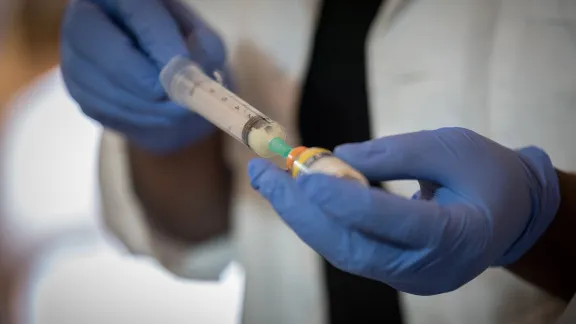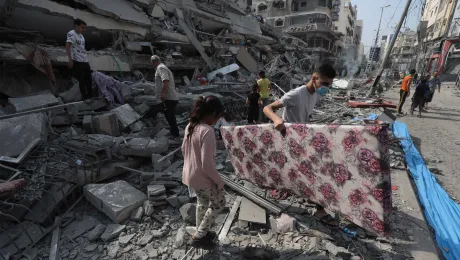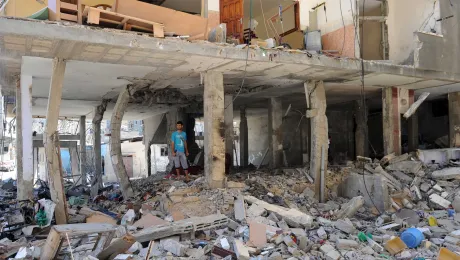A new report from LWF explores both the impact, as well as the short and longer-term responses of churches and partners to the COVID-19 pandemic.

Photo: LWF/Albin Hillert
Responses and challenges for LWF and partners in responding to the COVID-19 pandemic
(LWI) - The Lutheran World Federation (LWF) has published a new report detailing its advocacy work and policy engagement, alongside its practical, psychological and spiritual support to vulnerable communities during the COVID-19 pandemic.
Entitled ‘No one is safe until everyone is safe’, the report explores both the impact, as well the short and longer-term responses of churches and partners. It concludes with recommendations for policy makers, donors, churches and other faith actors to continue building back from the devastating effects of the pandemic in many parts of the world.
Based on a series of interviews with LWF staff and members of partner organizations, the report highlights the life-saving impact of the LWF’s Rapid Response Fund in providing funding for communities in need of both short-term aid and longer-term support for recovery and resilience building. It was launched at the United Nations in New York on 3 February 2023.
Vulnerable communities most affected
“The sad reality is, that not everybody is safe,” said Rev. Dr. Anne Burghardt, LWF general Secretary, in her keynote address. “There are still millions of people who do not have access to vaccines, accurate information or support.”
While many of the LWF supported projects focused initially on immediate and practical needs, “there was a clear political and advocacy aspect to the pandemic”, says Isaiah Toroitich, LWF Head of Advocacy and editor of the report. “People and communities who are vulnerable and marginalized tend to be left alone and left out during difficulties like this.” He emphasized that civil societies and faith-based organizations needed to be aware of this multiplying effect.
At the same time, the study found that religious organizations played a unique role, especially in countering desinformation and misinformation. During the following discussion, examples were cited such as faith leaders getting vaccinated publicly, and speaking about hygiene and the causes and effects of the pandemic.
A shift for churches
For churches and faith communities, the pandemic has lasting effects, concerning the the ways to live faith and also to fundraise. The new publication notes the ongoing financial challenges facing both LWF member churches and country programs in the wake of the pandemic. It also underlines the importance of LWF’s advocacy work to bring the needs of marginalized communities to decision makers at local, regional and international level.
Among the significant changes that the pandemic and subsequent lockdowns necessitated for faith-based organizations, including the LWF, was an increased localization of activities, with a corresponding increase in trust between program executives and local partners on the ground.
Watch the "No one is safe until everyone is safe" launch event


